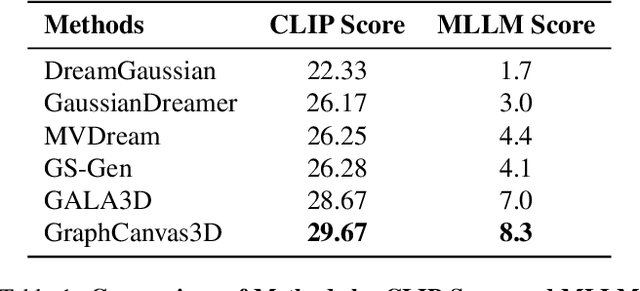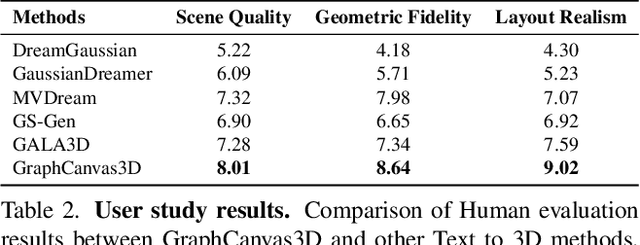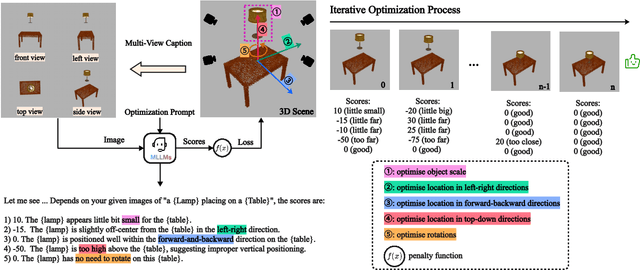Wu Zongkai
Graph Canvas for Controllable 3D Scene Generation
Nov 27, 2024



Abstract:Spatial intelligence is foundational to AI systems that interact with the physical world, particularly in 3D scene generation and spatial comprehension. Current methodologies for 3D scene generation often rely heavily on predefined datasets, and struggle to adapt dynamically to changing spatial relationships. In this paper, we introduce \textbf{GraphCanvas3D}, a programmable, extensible, and adaptable framework for controllable 3D scene generation. Leveraging in-context learning, GraphCanvas3D enables dynamic adaptability without the need for retraining, supporting flexible and customizable scene creation. Our framework employs hierarchical, graph-driven scene descriptions, representing spatial elements as graph nodes and establishing coherent relationships among objects in 3D environments. Unlike conventional approaches, which are constrained in adaptability and often require predefined input masks or retraining for modifications, GraphCanvas3D allows for seamless object manipulation and scene adjustments on the fly. Additionally, GraphCanvas3D supports 4D scene generation, incorporating temporal dynamics to model changes over time. Experimental results and user studies demonstrate that GraphCanvas3D enhances usability, flexibility, and adaptability for scene generation. Our code and models are available on the project website: https://github.com/ILGLJ/Graph-Canvas.
Human Motion Instruction Tuning
Nov 25, 2024



Abstract:This paper presents LLaMo (Large Language and Human Motion Assistant), a multimodal framework for human motion instruction tuning. In contrast to conventional instruction-tuning approaches that convert non-linguistic inputs, such as video or motion sequences, into language tokens, LLaMo retains motion in its native form for instruction tuning. This method preserves motion-specific details that are often diminished in tokenization, thereby improving the model's ability to interpret complex human behaviors. By processing both video and motion data alongside textual inputs, LLaMo enables a flexible, human-centric analysis. Experimental evaluations across high-complexity domains, including human behaviors and professional activities, indicate that LLaMo effectively captures domain-specific knowledge, enhancing comprehension and prediction in motion-intensive scenarios. We hope LLaMo offers a foundation for future multimodal AI systems with broad applications, from sports analytics to behavioral prediction. Our code and models are available on the project website: https://github.com/ILGLJ/LLaMo.
 Add to Chrome
Add to Chrome Add to Firefox
Add to Firefox Add to Edge
Add to Edge